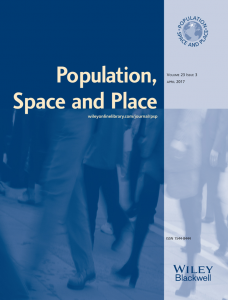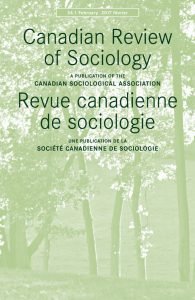Just Existing is Resisting: a paper-video pairing strategy to talk about the everyday struggle against GM crops in Spain
GM crops have created (and still create) socio-political storms around the globe. These conflicts illustrate a clash of visions, values and paradigms enacted by different forms of agriculture. While the EU has put considerable weight on the concept of co-existence to manage these conflicts, the nature of GM crops and the social conditions around them pose significant challenges for achieving this aim. Both the biological agency of GM crops and the social infrastructure around these crops facilitate an unintentional spread that contaminates both conventional and organic systems via transport of GM seeds, pollen or grain.
In light of the increasing global demand for non-GM products and the desire to support alternative visions of agricultural production and consumption, how do actors in contexts of so-called coexistence manage to resist both GM crop expansion and GM contamination, and continue to maintain and promote GM-free spaces, approaches and markets?
Everyday resistance against the expansion of GM in Spain
While most research studying social resistance has traditionally focused on visible forms of contestation, in our article Just existing is resisting: The everyday struggle against the expansion of GM crops in Spain, we drew on the theory of James Scott to examine some of the everyday practices of resistance by which different actors (from both the chemically intensive ‘conventional’ and the organic ‘alternative’ agri-food networks) constrain and challenge the expansion of GM crops. These normalised practices may complement other more visible and confrontational tactics of social resistance.
The empirical data supporting this research comes from Spain, the only country that currently has large-scale cultivation of GMOs in Europe. There is only one type of GM maize commercially sown, known as Bt maize MON810, which incorporates a gene from a bacterium, making the maize toxic to caterpillar pests. GM maize has been increasingly sown in Spain since its introduction in 1998 and this expansion has clearly negatively impacted the production of organic and conventional maize. Co-existence has never been regulated in the country and no specific compulsory measures exist to support it. One of the main consequences of this has been that the risk of genetic contamination has generated a hesitance amongst farmers to cultivate organic maize. In fact, despite a significant increase in organic agricultural production throughout Spain, organic maize production has remained remarkably marginal over recent years.
Despite the lack of a continuous and strong anti-GMO movement in Spain, everyday forms of resistance manifest through actions that seek to counterbalance and/or contain the dominance of GMOs by minimising the potential of GM expansion. As we develop in our paper, these are related to changes in farming practices, the use of both economic and social incentives, the performance of extensive monitoring, voluntarily lowering the threshold of genetic contamination, and claiming higher status.
These everyday practices work to maintain the possibility of a future for alternative agri-food systems and, interestingly, are opening the potential for new alliances between stakeholders from agricultural models that have traditionally been antagonistic (i.e., conventional and organic). Importantly, these forms of resistance essentially also point to the fundamental contradiction between the EU’s liberal commitment to coexistence as a way to manage the GM controversy, and the reality that is marginalising non-GM producers and creating contamination risks that are impossible to control.
Experimenting with scientific communication
This paper was published as part of The Agri/Cultures Project, a research project focused on developing novel concepts, methods and empirical knowledge for understanding and assessing the complex relational networks embodied in and performed by agricultural biotechnologies. Besides generating relevant knowledge on the GM controversy, another main aim of the project is to explore novel ways to capture and visualise this knowledge so that the information is accessible, engaging, relevant and useful for publics and policy-makers.
In order to explore new strategies to enhance scientific communication, we experimentally paired our paper Just existing is resisting: The everyday struggle against the expansion of GM crops in Spain with a popular science dissemination strategy in the form of the short animation film that you can watch at the top of this entry. The short animation film was produced jointly with a visual artist and was released at the same time we published the paper in Sociologia Ruralis. The video was made available in two languages (English and Spanish) and has been broadly shared in social media (Facebook, Youtube and Twitter). Combining the release of the scientific paper with a short animation film dramatically enhanced the visibility of the research, helped it to reach new and diverse audiences and created new ways to share academic results. So, we encourage others to share it too!
Read the full article here
Authors affiliations:
Amaranta Herrero: GenØk – Centre for Biosafety Siva innovasjonssenter, Tromsø P.O. Box 6418, Tromsø, Norway
Rosa Binimelis: GenØk – Centre for Biosafety Siva innovasjonssenter Tromsø, P.O. Box 6418 9294 Tromsø, Norway Universitat de Vic-Universitat Central de Catalunya Agroecology and Food Systems Chair, 08500 Vic, Spain
Fern Wickson: GenØk – Centre for Biosafety Siva innovasjonssenter, Tromsø P.O. Box 6418, Norway





1475-6781/asset/JSS.gif?v=1&s=377bb8e0c3d0fcf201f301ded7cf610142072c3e)